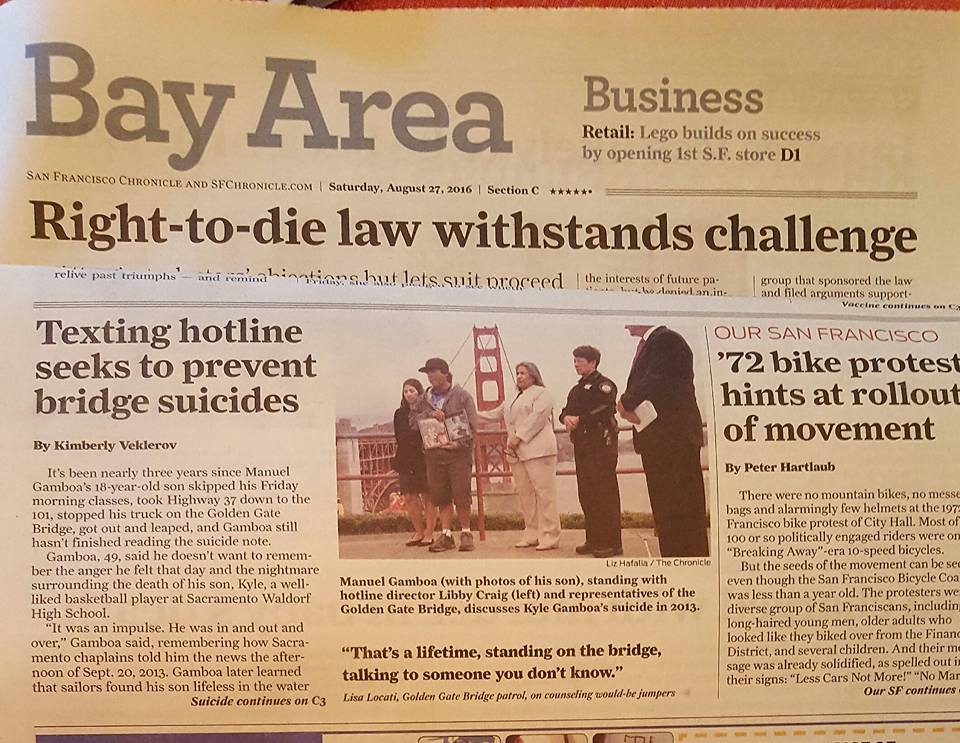Sometimes movie spoilers are a welcome thing.
Several months ago I saw a trailer for the movie Me Before You and got a little excited. A modern romance featuring a disabled main character. It looked so positive and promising.
I should have known better.
Apparently Me Before You, which hits theaters next weekend, was a novel first and many disability rights activists are speaking out about its less-than-romantic ending. Some even protested at the movie’s UK premier.
“I had heard this was a good book and read it. I was horrified,” a friend of mine told me.
So, consider this your warning.
Once again we have a story involving disability told through an entirely able-bodied lens. The message: It’s better to be dead than disabled. And, as in Million Dollar Baby before it, instead of learning to live with his disability, the main character gets help ending his life.
Dominick Evans and Kim Sauder, who have both read the novel, have the must-reads on all that is wrong with Me Before You — not the least of which is that neither the book’s author nor the filmmakers’ seem to have bothered to even try to consult anyone actually living with the disability they portray.
Defenders of Me Before You will brush off criticism of the story because, “some disabled people people actually feel that way, so who are you to judge?”
While that may technically be true, and, yes, a spinal cord injury is devastating to come to terms with, the reality is that the Daniel Jameses and Dan Crewes of the world represent a very tiny percentage of patients who cannot accept or live with their injuries. Most paralyzed people are quite happy to be alive.
Of all the things Evans and Sauder mention, however, this part really stood out to me. Speaking of the female lead’s traumatic past, Sauder writes:
It’s bad enough that rape was used as character development, but it is made worse when it is clearly something Louisa is meant to get past with Will’s assistance but Will isn’t supposed to learn to live with being paralyzed. It clearly sets up the idea that people can and should be expected to come to terms with certain kinds of trauma but not others.
I found this particularly ironic because in the Netherlands recently, where assisted suicide has been legal for decades, a woman in her twenties was actually given a lethal injection after doctors and psychiatrists decided that she had “incurable” post-traumatic stress disorder following years of sexual abuse as a child.
The unnamed woman also suffered from anorexia, flashbacks, hallucinations, chronic depression, obsessive-compulsive disorder, mood swings and other physical illnesses relating to her mental state.
It went ahead, according to the Daily Mail, “despite improvements in the woman’s psychological condition after ‘intensive therapy’ two years ago.”
So, to the able-bodied movie-goers across the nation who will get misty-eyed and praise Will Traynor’s selflessness act of “love” and think every disabled person should have the same “choice”, consider this: it is well established that once death becomes acceptable treatment for some pain and suffering, it eventually becomes the answer to all.
Dr. Theo de Boer, a former member of a euthanasia review board in the Netherlands, recently wrote about the country’s ever-expanding criteria for euthanasia, which was once limited to terminal illness, but now includes dementia, psychiatric illnesses, and accumulated age-related complaints.
And then, of course, there’s Belgium, where Parliament passed a euthanasia law in 2002, and the public was promised that there would be strict safeguards. Now, 14 years later, infants and teenagers can be candidates for a lethal injection and there are seminars in nursing homes promoting euthanasia as an appropriate option.
As my friend, Dr. Gerard Nadal, put it recently, “If death is the best that the most educated amongst us has to offer those who live in the grip of fear and suffering, then western civilization is officially dead.”
Instead of seeing what has happened in Belgium and the Netherlands as a warning sign, Canada is on the verge of passing some of the world’s most radical, far-reaching, assisted suicide legislation. And, even closer to home, it looks like New York could become the 6th state in the US to make Dr. prescribed suicide legal.
If all that wasn’t bad enough, it also turns out that states that have assisted suicide also have a statistically significant increase in other suicides.
Welcome to the slow suicide of the West.









